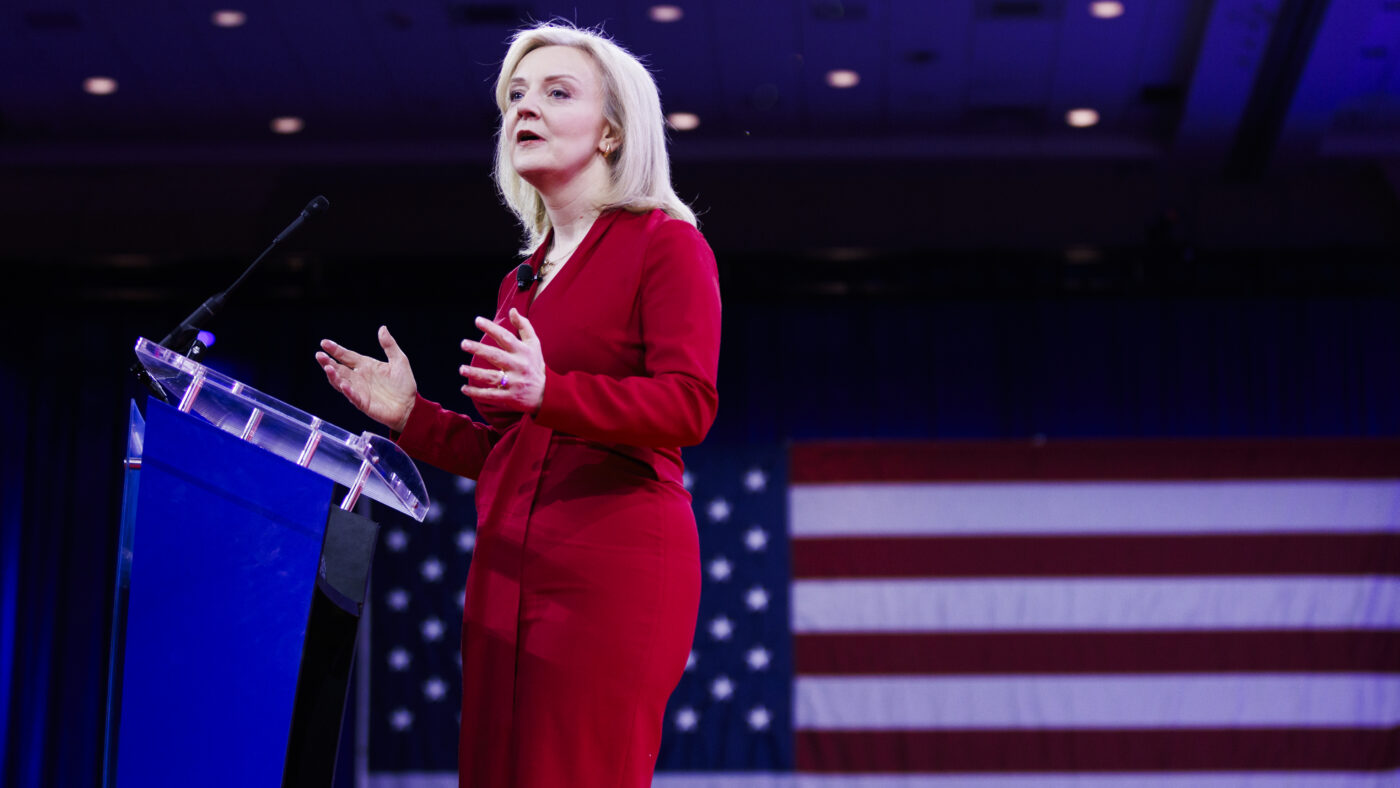Liz Truss seems to have had quite the ideological conversion, or at least a sharp pivot. This week, the former Prime Minister went stateside to attend the Conservative Political Action Conference (CPAC) in Washington DC. For context, conservative gatherings in America are very different to those held here – especially with a post-Trump Republican Party. Instead of tweed-clad young Tories quoting Burke and calling for planning reform, some of our transatlantic cousins are more interested in preaching furiously about evil cabals of ‘global elites’ and questioning the results of democratic processes.
In the wake of her abrupt defenestration, Truss appears to have embraced the defensive attitude that dominates much of the modern Republican Party. The US edition of her forthcoming book ‘Ten Years to Save the West’, has the apocalyptic subheading: ‘Leading the revolution against globalism, socialism, and the liberal establishment’. This rhetoric was evident throughout her keynote address to CPAC, where she blamed the ‘deep state’ for her untimely political demise.
In order to win over the American right, she of course had to cosy up with the king of buck-passing himself, Donald J. Trump. Not only did she appear on a podcast with Trump’s former right-hand-man Steve Bannon, where she bizarrely associated the Financial Times and Economist with her aforementioned nemeses, but she formally backed his presidency.
But there are a couple of glaring issues the disagree on. Truss is one of the West’s most prominent and zealous advocates for free trade – definintely something that can’t be said of The Donald. And quite rightly, she has also been a staunch advocate of supporting the Ukrainian war effort. In an interview on GB News after her CPAC speech, she decried ‘the appalling war in Ukraine’. Yet her Republican love-in coincided not just with the two year anniversary of Russia’s invasion, but increasing signs that a Trump presidency would put the US’s support for Ukraine at risk.
Despite Truss’s insistence to the contrary, Trump has made his position on the conflict clear. He is pressuring his party to withhold $75bn in aid, much of which is intended for Ukraine. Similarly, he recently angered Nato by recalling an anecdote in which he told a European leader that he would refuse to defend his allies if they failed to meet their commitment to spend 2% of GDP on defence.
While positions like these might impress the chronically online MAGA brigade, they make for terrible geopolitics.
It is also the case, as William Atkinson noted elsewhere on these pages earlier this week, that Brits have an at times unhealthy fixation on America, especially American politics. While it is important to align with international allies, and we certainly love to boast about ‘The Special Relationship’, politicians of all sides have a tricky line to walk with Trump’s Republican Party. However, Truss is not the only Tory to back the former President. Boris Johnson has also expressed open support for a second Trump presidency. Yet Trump remains a deeply unpopular figure in Britain, and others within the Conservative Party have expressed concern about colleagues cosying up.
Many are particularly concerned with Trump’s approach to international politics. America First should not mean America Alone. Yet Trump appears to regard any kind of alliance or entanglement – whether economic or diplomatic – as a zero-sum game. He has no patience for the kind of coalition-building and economic co-operation that we saw in the decades after the Second World War. Yet that is how tyranny is defeated and liberal spheres of influence are able to emerge. It is also the best way for America to face down the threat of a rising China – with others on its side.
Many on the Trumpian end of international relations regard Thucydides as their intellectual grandfather. But they seem to widely misunderstood his work. This quote seems particularly apt:
‘When will there be justice in Athens? There will be justice in Athens when those who are not injured are as outraged as those who are.’
If Truss wishes to build on her legacy as Foreign Secretary and become an international voice of support for Ukraine, it is hard to see how she can do that by aligning with Trump’s ‘America First’ attitude.Perilously short of ammunition and manpower, the Ukrainian military is now in a precarious position, and if America falters in its commitments, allowing its outrage at Russia’s barbarism to fade away, then yet another country will be lost to those who want to destroy us.
Click here to subscribe to our daily briefing – the best pieces from CapX and across the web.
CapX depends on the generosity of its readers. If you value what we do, please consider making a donation.


